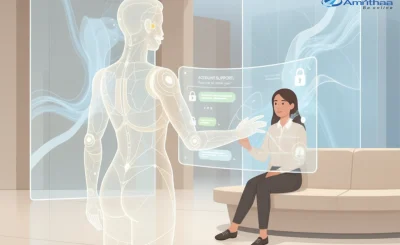Customer service used to be a straight line—call a center, wait on hold, talk to one agent. But now? It’s more like a web. A messy, fast-moving, decentralized web. And honestly? That’s a good thing.
The Old Way vs. The New Way
Picture this: You’re stuck with a tech issue. The old model meant calling a 1-800 number, navigating a maze of automated menus, and hoping—praying—you’d get someone who could actually help. Frustrating, right?
Decentralized support flips the script. Instead of one central hub, help comes from everywhere—community forums, social media, chatbots, even peer-to-peer networks. It’s customer service without the bottlenecks.
Why Decentralization Works
1. Faster Resolutions (No More Hold Music)
With decentralized support, answers don’t sit in a queue. Need help? Post in a forum, tweet at a brand, or jump into a Discord channel. Real people—or smart bots—jump in fast. No waiting, no transfers.
2. Knowledge Lives Everywhere
Centralized models rely on trained agents. Decentralized ones tap into collective knowledge. Users help each other. Employees from different departments chime in. Even AI learns from past interactions. The result? Richer, more dynamic solutions.
3. It Scales Like Crazy
Think of it like a city. One big support center is a single highway—traffic jams guaranteed. Decentralized support? It’s a grid of side streets, bike lanes, and shortcuts. More routes mean fewer logjams.
The Tools Making It Happen
So, what’s powering this shift? Here’s the deal:
- Community Forums—Like Reddit or branded hubs where users solve problems together.
- Social Media—Twitter DMs, Facebook groups, even TikTok comments becoming legit support channels.
- AI & Chatbots—Not the clunky ones from 2010. These learn, adapt, and hand off to humans seamlessly.
- Peer-to-Peer Networks—Think gig economy meets customer service. Freelancers or power users stepping in.
The Challenges (Because Nothing’s Perfect)
Sure, decentralized support isn’t all sunshine. Consistency can be tricky—different voices, different answers. And without guardrails, misinformation can spread. But companies are figuring it out:
- Using moderated communities to keep quality high.
- Blending AI with human oversight to catch errors.
- Creating knowledge bases so even decentralized answers stay on-brand.
What’s Next? The Future of Decentralized Support
This isn’t a trend—it’s a rewrite. As remote work grows and AI gets smarter, decentralized support will only expand. Imagine:
- VR help desks where experts pop into your screen like holograms.
- Blockchain-backed support logs that track every interaction securely.
- Brands incentivizing customers to help each other (think loyalty points for solving issues).
The bottom line? Customer service isn’t just changing. It’s democratizing. And that’s a win for everyone—except maybe hold music composers.






